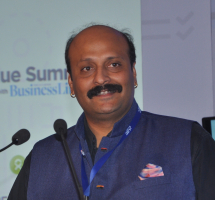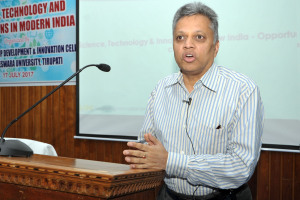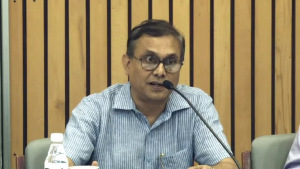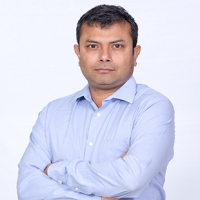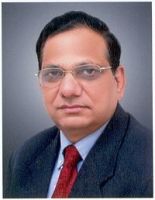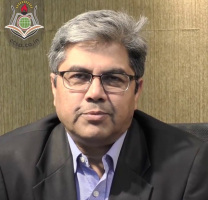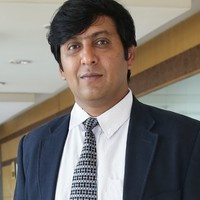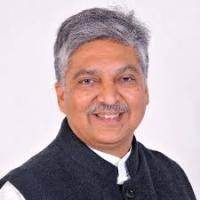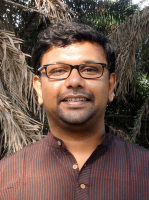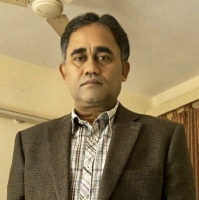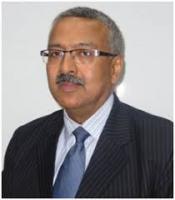
- This event has passed.
NITI Roundtable: Innovation for Prosperity
4th December 2018 @ 2:00 PM - 6:00 PM
Innovation is being increasingly acknowledged as a critical tool for enhancing competitiveness, tackling societal challenges, and driving economic growth and development. The move from a resource led to an innovation led economy can help nations in accomplishing the twin goals of sustainable and inclusive development. To this end, this roundtable is an effort to convene academicians and experts from industry to discuss India’s IP regime, debate the most suitable pathways for improving India’s innovative capacity, discuss frameworks for innovation-led economic growth in India, deliberate the inclusivity of this growth i.e. how the situation of the poorest and the most vulnerable groups of society can be improved, and review how the situation differs across regions with the help of a state level innovation index. It is important to embark on a regional perspective as India is a diverse country with wide range of challenge and opportunities that are unique to each region.
OBJECTIVES
The roundtable will convene experts and thinkers with the objective of developing concrete policy recommendations to promote innovation-led economic development in India. The discussion will focus on advancing the following set of objectives:
- Examine the challenges posed and opportunities provided by the current policy landscape, research and innovation system, economic and political conditions of the country.
- Understand the implications of the different paths and patterns that are available for scaling up innovation and enhancing the overall competitiveness of Indian regions.
- Discuss a systemic policy package that the Indian government can adopt based on the global experiences that can attract foreign investments and deliver inclusive and sustainable growth.
Important debates, concrete recommendations from the roundtable discussion will be published in the form of a white paper.
AGENDA
14:00 – 14:05 – Introductory Address
14:05 – 14:20 – Keynote by Amitabh Kant, CEO, NITI Aayog
The talk will revolve around the linkages between research institutes and industry and how strengthening them can help in improving the competitiveness of Indian industries.
14:20 – 14:35 – Keynote by Prof. Vinod Paul, Member, NITI Aayog
The talk will revolve around the linkages between research institutes and industry and how strengthening them can help in improving the competitiveness of Indian industries.
14:35 – 16:00 – Discussion 1: How higher education institutes drive innovative capacity and competitiveness of Indian states
This session will discuss the about the enablers of innovation such as universities as engines of development, the linkages between industry and academia, overall business environment, research and development expenditure, infrastructural facilities etc. and how they differ across regions. It will also shed light on the relationship between innovation and economic development and innovative capabilities of regions can drive growth and prosperity.
The discussion will cover the following aspects:
- Examine the linkages that exist between the universities and industries
- What are the steps being taken by both the parties to strengthen these linkages and the challenges faced by them in this process? What are the platforms available to innovators for showcasing their inventions to the industry?
- How can the government help in strengthening these linkages?
- The challenges that exist in the process of diffusion of knowledge
- How our higher education landscape can be made more research oriented?
- How these challenges differ across Indian states and how it impacts their competitiveness?
The discussion will be chaired by Shri. Yaduvendra Mathur, Additional Secretary, NITI Aayog
Discussants:
- Nilanjan Banik, Professor of Economics, Bennett University, India
- The challenges that exist in the process of diffusion of knowledge
- How our higher education landscape can be made more research oriented?
- How these challenges differ across Indian states and how it impacts their competitiveness?
- What is the state of India’s innovation? How can India’s current innovation progress and policy lead to prosperity?
- What role does R&D and higher education play for innovation in India? How can the current scenario be enhanced?
- Amit Shovon Ray, Professor, Jawaharlal Nehru University
- The challenges that exist in the process of diffusion of knowledge
- How our higher education landscape can be made more research oriented?
- What is the role of IPs as a facilitating factor for innovation in India? What reforms need to be brought about to alter the path of innovation?
- Mallika Shakya, Assistant Professor, South Asian University
- How our higher education landscape can be made more research oriented?
- How these challenges differ across Indian states and how it impacts their competitiveness?
- How does the ease of doing business improve with innovation? What path does India need to adopt for pushing innovation and creating prosperity?
- Pravakar Sahoo, Professor, Institute for Economic Growth
- Examine the linkages that exist between the universities and industries
- What are the steps being taken by both the parties to strengthen these linkages and the challenges faced by them in this process? What are the platforms available to innovators for showcasing their inventions to the industry?
- How can the government help in strengthening these linkages?
- Amir Ullah Khan, Professor, Maulana Azad National University
- What impact do innovations have on competitiveness and social progress of India in the current scenario?
- What pathways should innovation in India take to ensure prosperity (both economic and social)
- Bappaditya Mukhopadhyay, Professor, Great Lakes Institute for Management
- Examine the linkages that exist between the universities and industries
- What are the steps being taken by both the parties to strengthen these linkages and the challenges faced by them in this process? What are the platforms available to innovators for showcasing their inventions to the industry?
- How can the government help in strengthening these linkages?
- What are the current international linkages for India? How can they be improved to attain economic prosperity?
- What role does trade play for innovation push for India?
- Ajay Mehra, Managing Director, South Asia, Bombardier
- How talent differ across Indian states and how it impacts their competitiveness?
- The role played by industry in attracting talent
Closing remarks by Dr. Murali Krishna Kumar, Senior Advisor, NITI Aayog
15:25 – 15:55 – Keynote by Dr. Vinod Kumar Paul, Member, NITI Aayog
16:00 – 17:20 – Discussion 2: India’s IP regime
It is widely recognized by the industry that India needs to develop a policy landscape that rewards innovation. This is one of the reasons why the research and development (R&D) expenditure by the private sector accounts for only 38 percent of India’s total R&D expenditure. Also, there are many challenges faced by innovators while filing for IP rights. This session will deliberate on these issues in India’s IP regime and devise measures for incentivizing the industry.
The discussion will cover the following aspects:
- Issues in effective enforcement of IP laws
- IP expertise of the judges in the lower level of judiciary
- Bureaucratic and regulatory hurdles in filing of patents, trademarks etc.
The two aspects of India’s IP regime – Section 3(d) and compulsory licensing that are important for maintaining a balance between access and incentives to innovate.
The discussion will be chaired by Shri. Yogesh Suri, Adviser, NITI Aayog
Discussants:
- Geeta Gouri, Former Member, Competition Commission of India
- Issues in effective enforcement of IP laws
- Bureaucratic and regulatory hurdles in filing of patents, trademarks etc.
- The two aspects of India’s IP regime – Section 3(d) and compulsory licensing that are important for maintaining a balance between access and incentives to innovate.
- What would be the best way forward for India to create a robust regulatory environment to enable innovation?
- Given the current state of innovation and technology, does India need enforcement or enablement. Please share light on the role of the state in ensuring prosperity via innovation
- Sunil Shah, Gujarat Innovation Society
- Issues in effective enforcement of IP laws
- IP expertise of the judges in the lower level of judiciary
- The two aspects of India’s IP regime – Section 3(d) and compulsory licensing that are important for maintaining a balance between access and incentives to innovate.
- What are the issues faced by startups and what the key areas where government and the regulatory authorities can help them?
- Arul George Scaria, Professor, National Law University, New Delhi
- The two aspects of India’s IP regime – Section 3(d) and compulsory licensing that are important for maintaining a balance between access and incentives to innovate. What would be the best way forward for India to create a robust regulatory environment to enable innovation
- Given the current state of innovation and technology, does India need enforcement or enablement. Please share light on the role of the state in ensuring prosperity via innovation.
- Uday Bhanu Sinha, Professor, Delhi School of Economics
- Issues in effective enforcement of IP laws
- IP expertise of the judges in the lower level of judiciary
- Bureaucratic and regulatory hurdles in filing of patents, trademarks etc.
- The two aspects of India’s IP regime – Section 3(d) and compulsory licensing that are important for maintaining a balance between access and incentives to innovate
- What is the way forward for a nation like India in terms of an effective IP implementation?
- Given the current state of innovation and technology, does India need enforcement or enablement. Please share light on the role of the state in ensuring prosperity via innovation.
Closing remarks by Shri. Yaduvendra Mathur, Additional Secretary, NITI Aayog
17:20 – 17:35 – Keynote by Manoj Saxena, Managing Director, Bayer Zydus Pharma
The Industry View: The talk will focus on India’s IP regime and the challenges faced by businesses in patent filing etc.
17:35 – 17:50 – Questions & Answers
17:50 – 18:00 – Concluding remarks by Dr. Amit Kapoor, Honorary Chairman, Institute for Competitiveness, India
Whitepaper
SPEAKERS
PRESS RELEASE
Roundtable on Innovation Held at NITI Aayog
New Delhi, India / 5 December 2018
NITI Aayog and Institute for Competitiveness organised a roundtable on “Innovation for Prosperity” on December 4, 2018. The roundtable was an effort to bring together the academia and the industry to discuss India’s innovation ecosystem and its IP regime, talk about the challenges faced in industry-academia interaction, debate the most suitable pathways for improving India’s innovative capacity, and review how the situation differs across regions with the help of a state level innovation index. The eventual objective of the roundtable was to draw actionable policy recommendations for NITI Aayog to work upon to improve India’s innovation capacity.
Amitabh Kant, CEO, NITI Aayog, kicked off the roundtable with an opening keynote on the vitality of innovation in ensuring India’s growth sustainability. He argued that India will keep adding more young people to its population till about 2042 and the challenge for the country will be grow at near double-digit growth rates for at least the next three decades up from its current growth of about 7 per cent on an average. Innovation will play a key role in ensuring such an outcome. The country needs to use its demographic dividend to drive innovation so that we can grow at a rapid pace.
Vinod Paul, Member, NITI Aayog, then set the ball rolling by posing the industry and academia with a set of questions that could help the government better help them in enabling a conducive environment of education. He asked for suggestion on how to connect the innovator, academia and the industry together.
Two panel discussions were held to bring out the views of the industry and academia on these questions. The first panel was held to discuss “how higher education institutes drive innovative capacity and competitiveness of Indian states.” It was chaired by Dr. Murli Krishna Kumarfrom NITI Aayog. The panel consisted of Nilanjan Banik of Bennett University, Amit Shovon Rayfrom JNU, Mallika Shakyafrom South Asian University, Pravakar Sahoofrom IEG, Amir Ullah Khanfrom Maulana Azad National University, Bappaditya Mukhopadhyayof the Great Lakes Institute for Management, and Ajay Mehra, Managing Director, Bombardier.
The panel mainly focussed on the problems with the education system in India and the problems that come an utter absence of industry-academia linkage. Universities play a dual role: knowledge creation and knowledge transfer. But since there is little interaction between industry and academia, the transfer fails to take place as ideas that work in the lab might not be suitable for the industry. Added to that, many of these institutions work on the same issue without interacting with one other and, hence, fail to benefit from crucial synergy effects. The panel was of the view that the government could facilitate this interaction in three ways: direct funding, which might be unfeasible due to resource constraints; fiscal incentives of tax benefits or subsidizing infrastructure; or by funding the transaction costs involved in academic exchanges.
The second panel of the roundtable discussed “India’s IP Regime” and was chaired byYaduvendra Mathurfrom NITI Aayog. The panellists included Geeta Gauri, former member, CCI, Manisha Kapoor, Senior Researcher, Institute for Competitiveness, Sunil Shah, Chairman, Gujarat Innovation Society, Dr. Arul George Scaria, Professor, NLU, and Uday Bhanu Sinha from DSE.
The panellists discussed the issues ailing the Indian IP environment beginning with who actually benefits from patents. It was pointed out that most applications that come in are not by actual innovators but product assemblers trying to maximise surplus for themselves. Downstream pricing was suggested to be a better mechanism of patent pricing. The legal aspect of IP was also discussed in depth and the importance of Section 3(d) and compulsory licensing was discussed, , both of which are some of the controversial aspects of the Indian IP regime. An important point that was highlighted was how only 33 percent of Institutions of National Importance, 24 percent of central universities and merely 12 percent of state universities have an IPR policy. So, when we talk about higher collaboration between industry and academia without clarity on who owns the IP, businesses will always be hesitant to collaborate. There was also a discussion on expanding the definition of innovation to include elements like product design, which companies like Apple have shown can play a crucial part in adding value.
Finally, the roundtable came to a close with concluding remarks from Manoj Saxena, Managing Director, Bayer Zydus Pharma to obtain a viewpoint from the industry. He talked about the benefits of the nation to an economy, especially in the field of pharmaceuticals. Then he highlighted the problems that come with the patent regime and India and why Indian drug companies file more patents in the US than in India. He further made the case for patents by arguing how patents last only for a short period, but innovation lasts longer.
Dr.Amit Kapoor, Chair, Institute for Competitiveness gave the concluding remarks for the roundtable by summarizing the learning from the interaction. Some of the important points that he touched upon included the problem of quality versus quantity in Indian education and building a viable framework for industry-academia collaboration. He highlighted on a point that came up during the discussions about the vicious cycle of innovation where knowledge creation which leads to knowledge transfer does not cycle back to more knowledge creation due to patenting. More focus should be given to academic exchange rather than research commercialization to break this vicious cycle. Finally, focus should shift towards outcomes of learning to ensure that a spirit of innovation is inculcated at the school-level if India is to reap its demographic dividend. Apart from the attendees, Dr Kapoor gave a special thanks to U.K. Sharma, Consultant, NITI Aayog, for his efforts in organizing the roundtable. He also announced that a while paper would be launched based on the discussions over the next few weeks.



